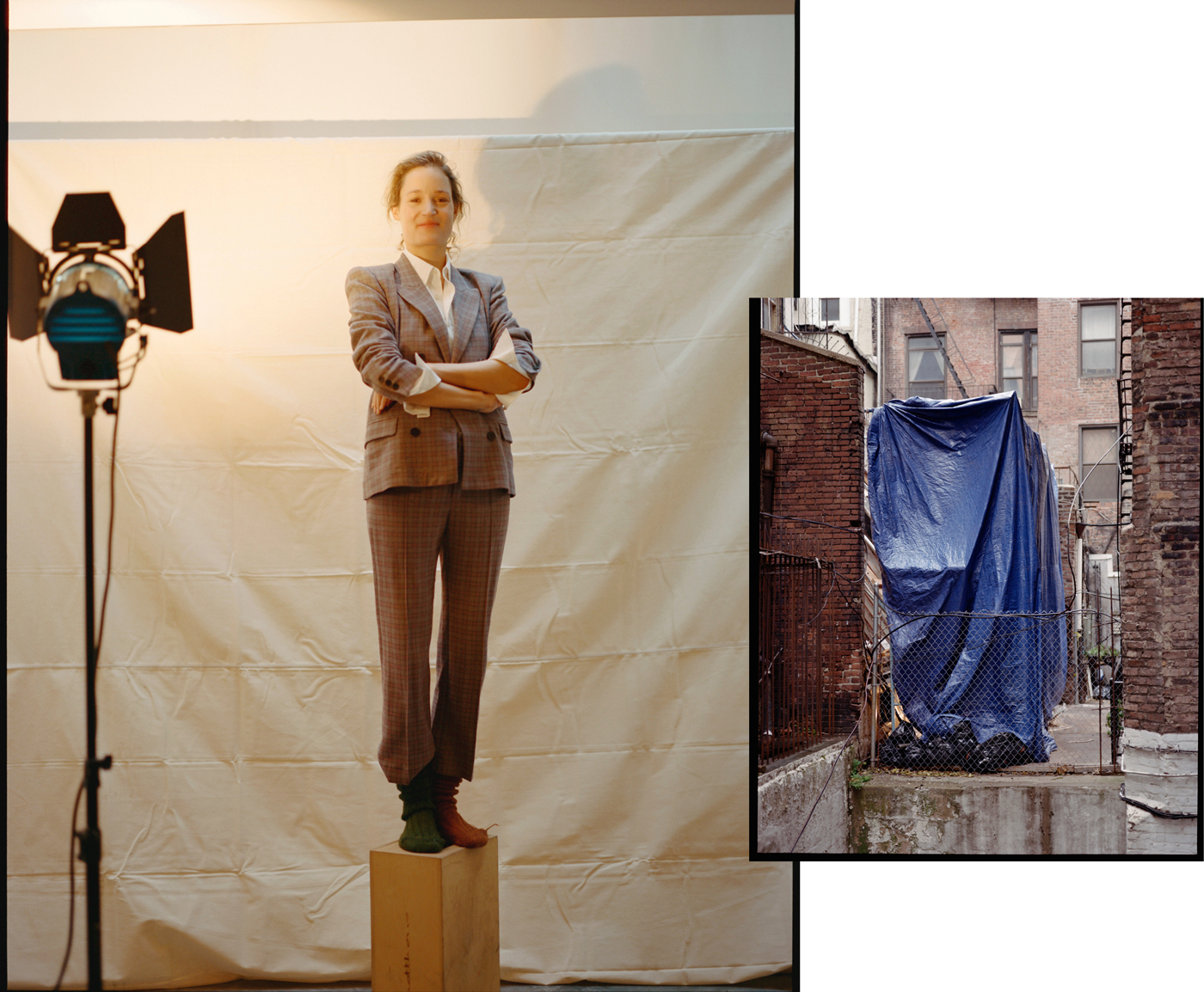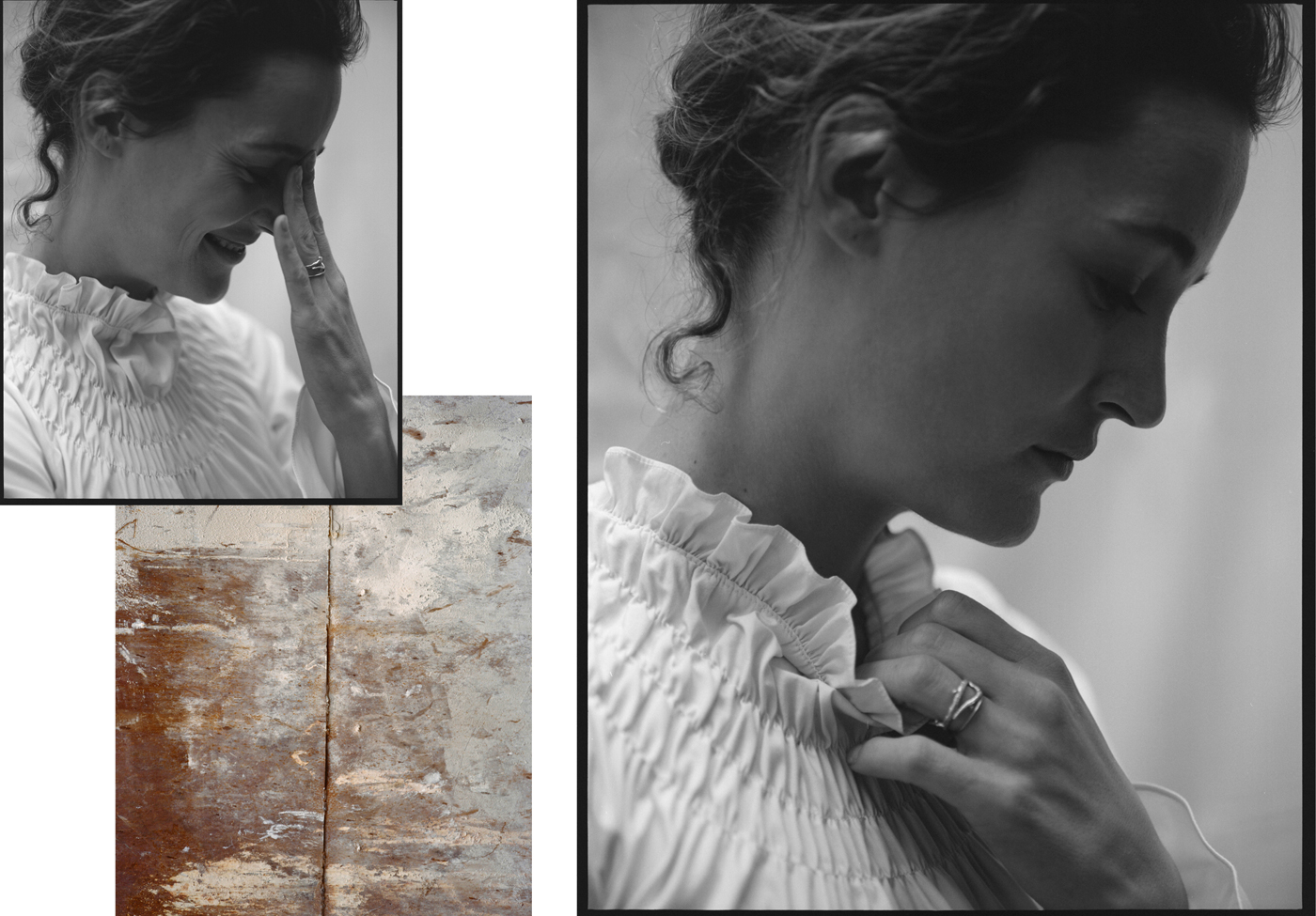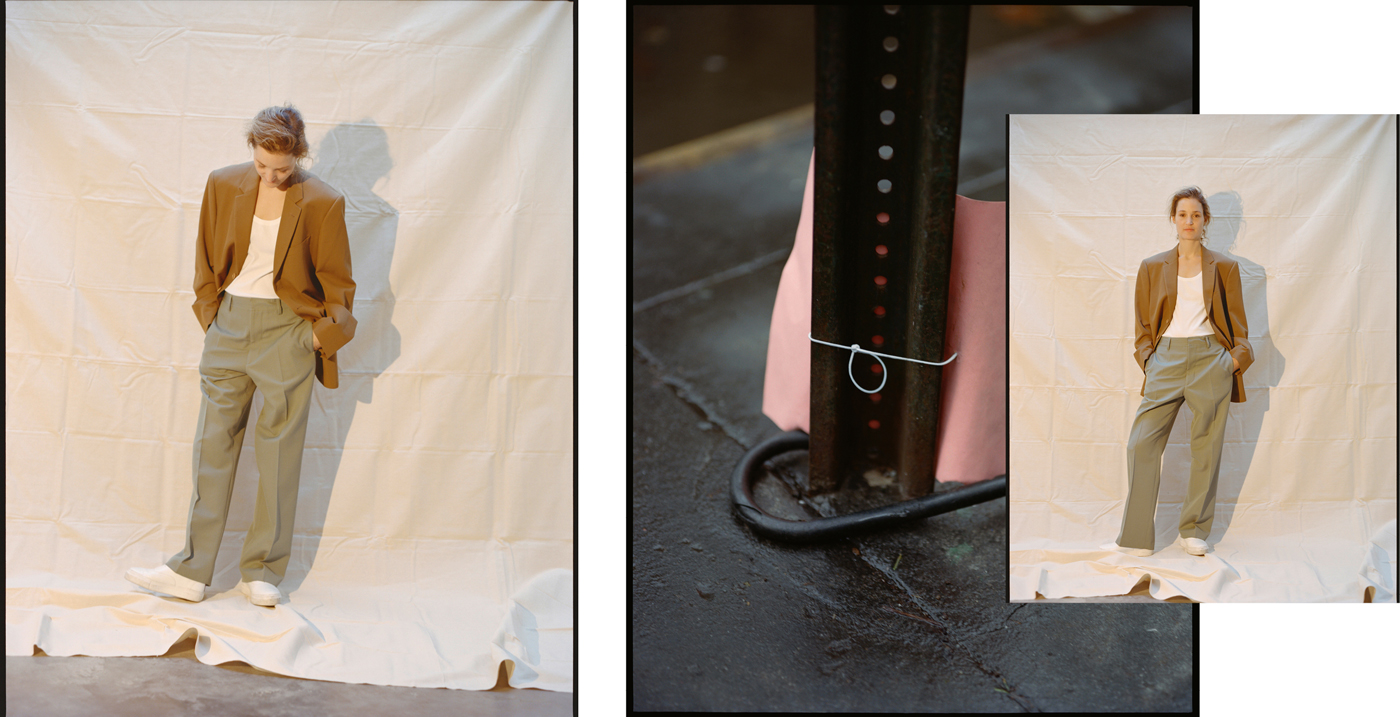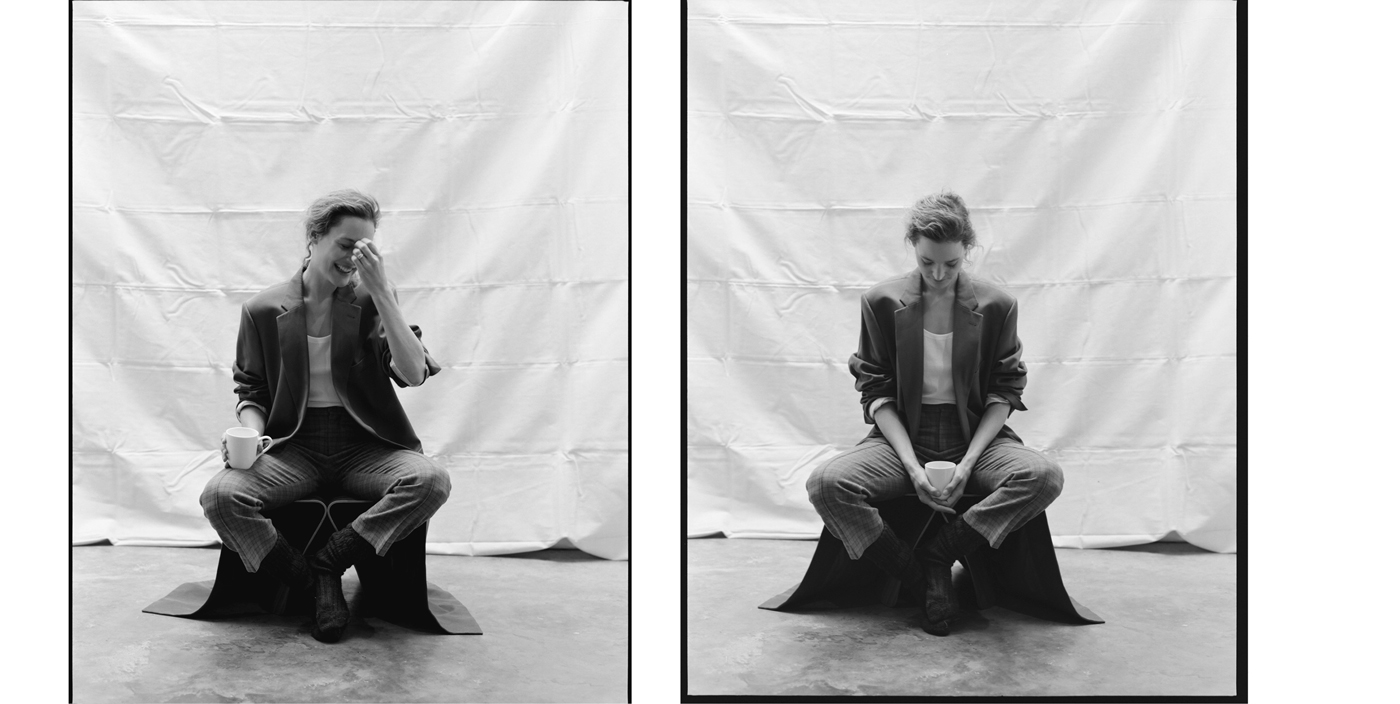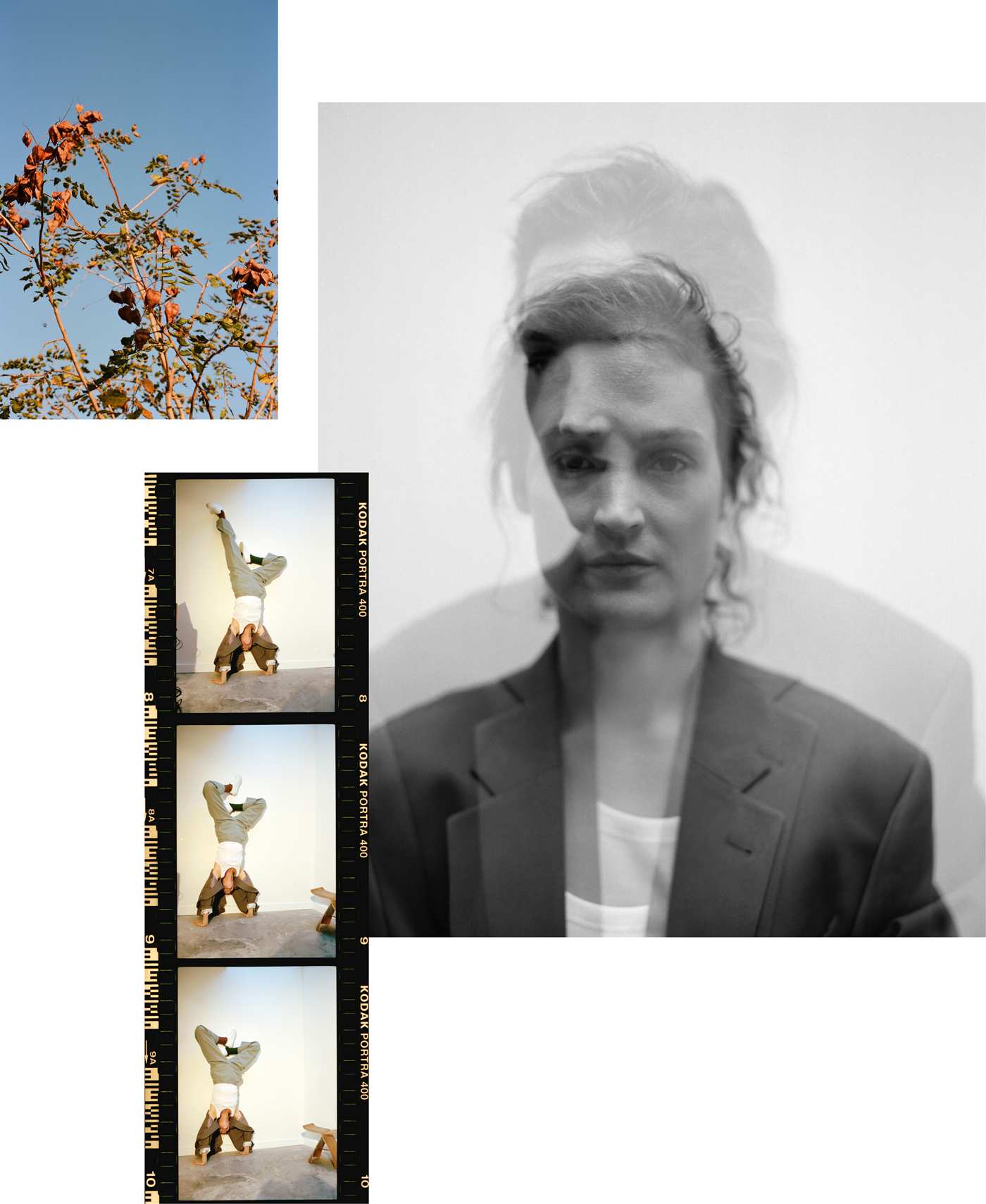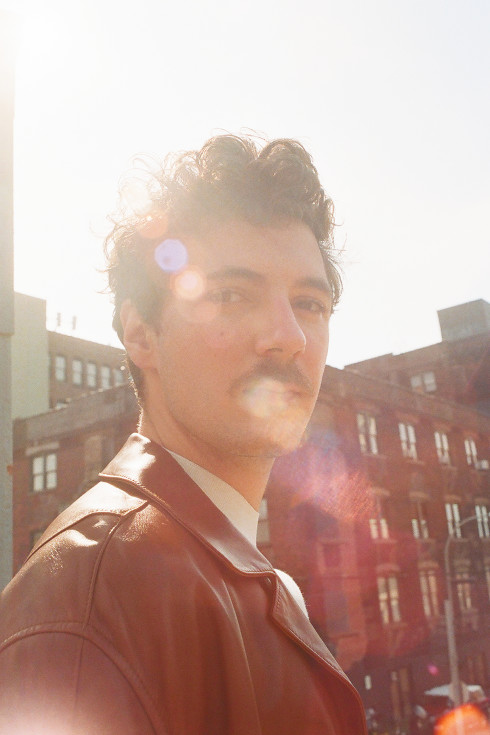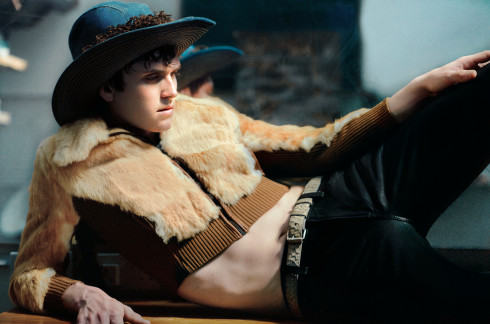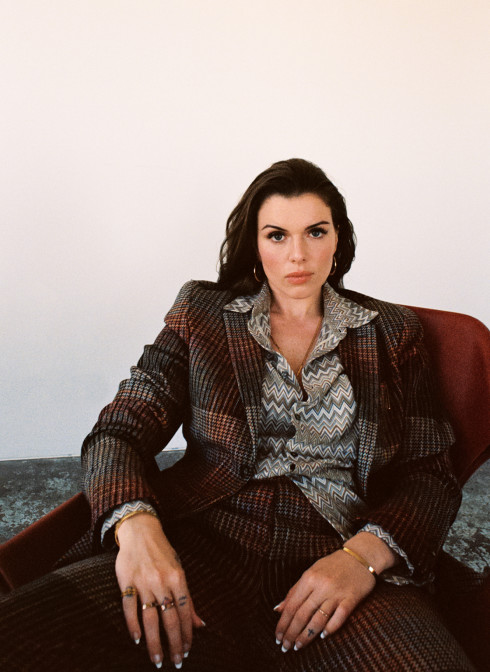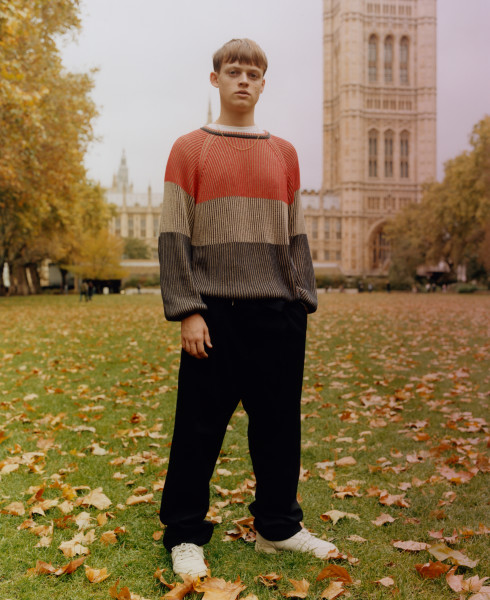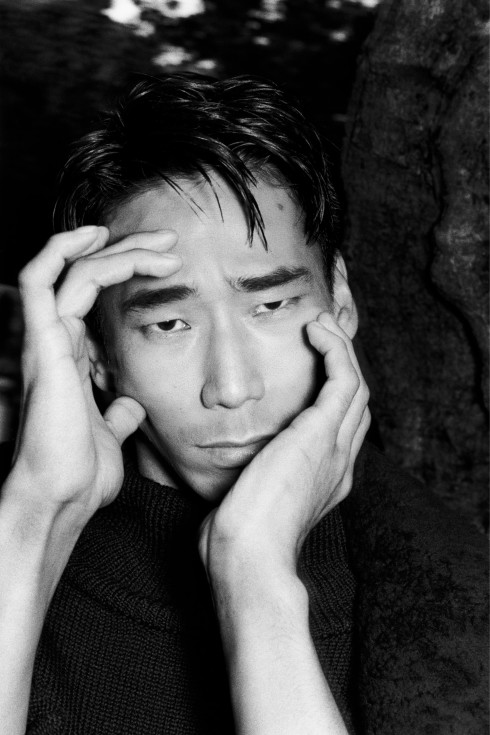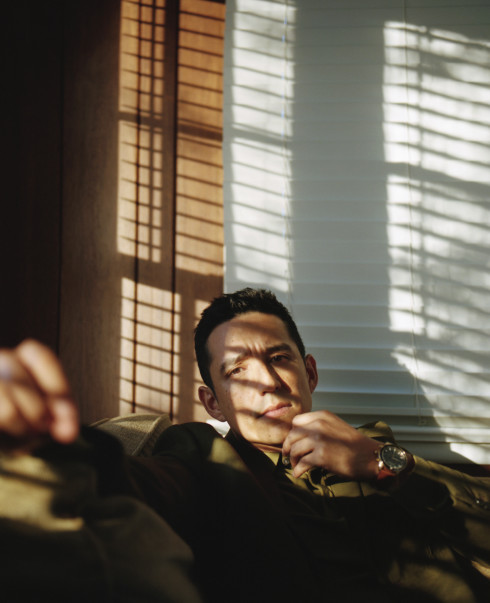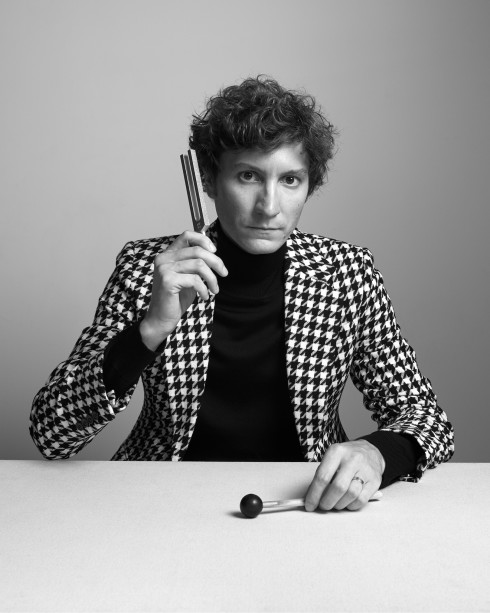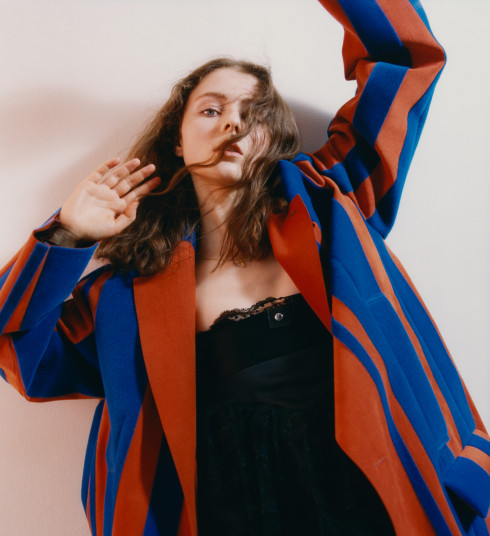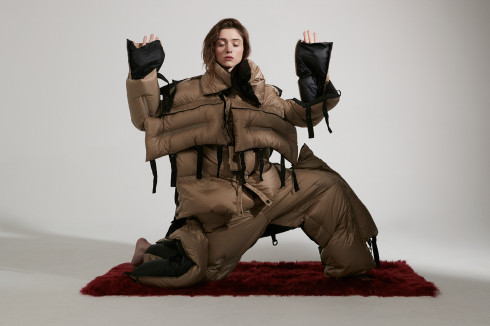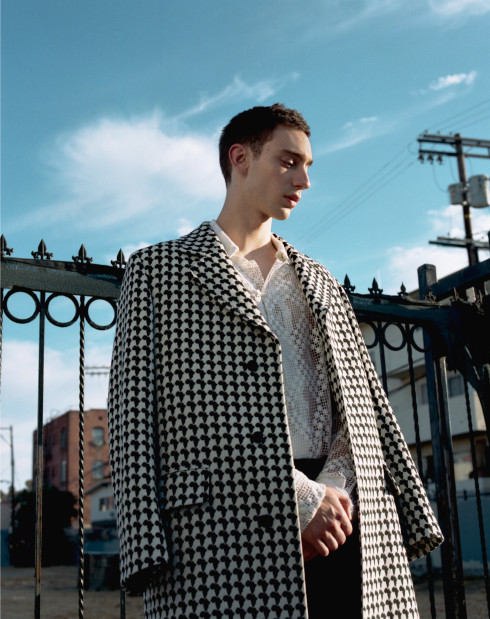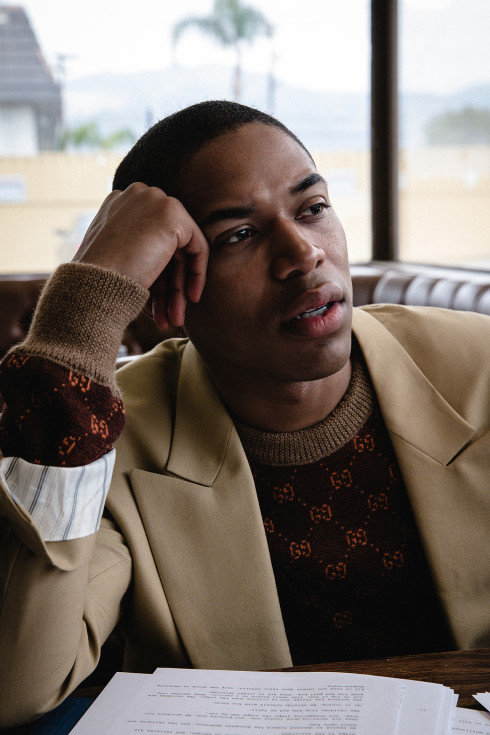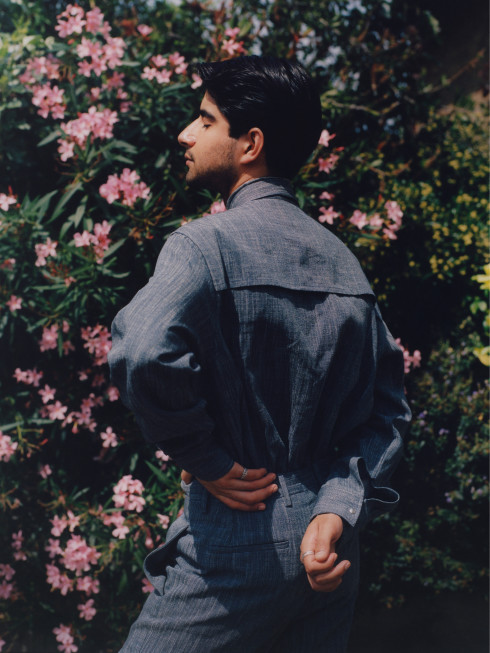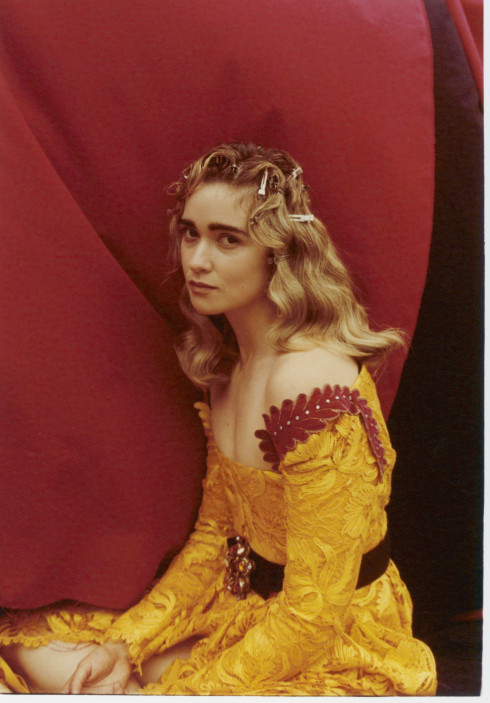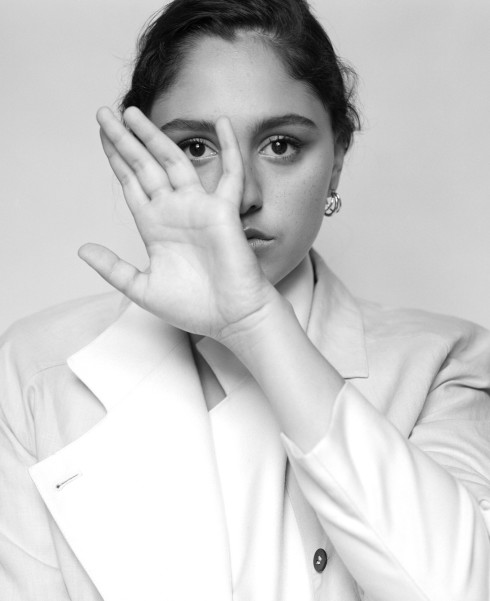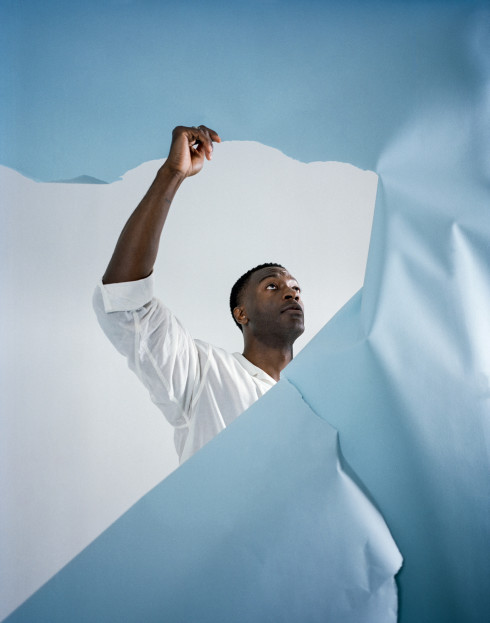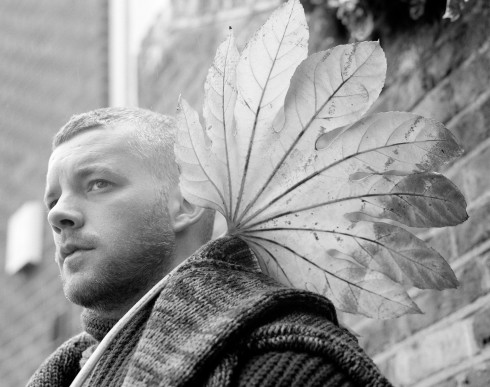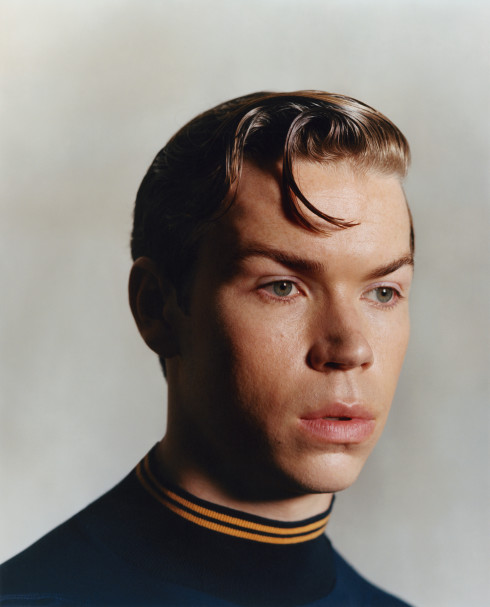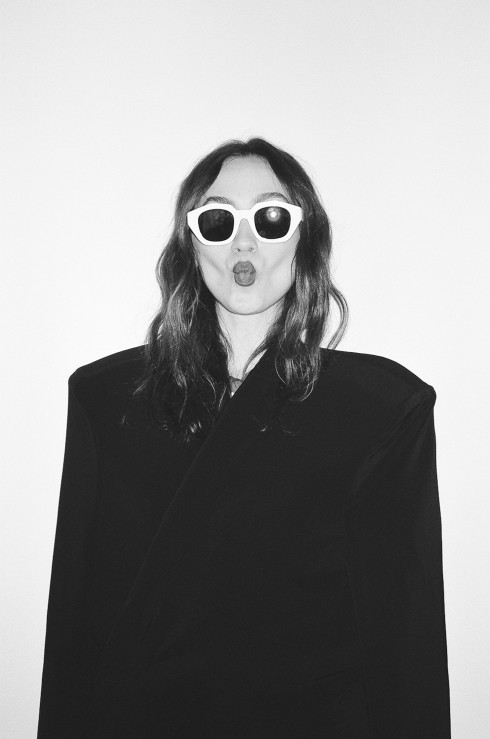
Coat and trousers by Dries Van Noten. Tank top by Hanro. All socks and jewelry throughout, Krieps’s own.
- By
- Jonathan Shia
- Photography by
- Ryan Plett
Styling by Ahnna Lee. Hair by Jillian Halouska at Starworks Artists. Makeup by Kelsey Deenihan at The Wall Group.
VICKY KRIEPS
He has four Baftas, three Oscars, and two Golden Globes, and was called “Hollywood’s Ultimate Star” on a recent cover of W. Until now, she was virtually unknown to English-language audiences. But in Paul Thomas Anderson’s latest film, Phantom Thread, they are partners, complements, and, in many ways, equals. He is Daniel Day-Lewis, playing Reynolds Woodcock, an imperious dressmaker in Fifties London with an immaculate and carefully controlled life. She is Vicky Krieps, the Luxembourgish actress giving a breakout performance as Alma, the intoxicating waitress who becomes his lover, caretaker, model, and muse.
The relationship between them is, to say the least, complicated. After meeting her in a countryside restaurant, Reynolds squires Alma back to London, introducing her to a world of gowns, balls, and royalty. At first, she seems to be just the latest in a long line of impressionable young women he molds and bend to his will, but it soon becomes clear that she is different, headstrong and self-assured in a way he has never encountered before. Reynolds is demanding and Alma is forceful, but Krieps says that the film is not about the tension between them, despite surface appearances. “The power struggle is there, yes, but in the end it’s actually about two people and it’s a dance more than a fight,” she says. “People like to see the duel, but actually both Daniel and I see it as a duet.”
Krieps’s performance as Alma is both intimate and revealing, but the character is ultimately somewhat of a mystery—in the end, we know everything about her moods and attitudes, but almost nothing about her background or biography. The actress says this level of removal was intentional. Given minimal details by Anderson—he told her only that Alma was an immigrant survivor of World War II who had been tasked with taking care of her family after her mother’s death—Krieps was given the freedom to build an entire inner life from there. “When we come into this story, Alma is already kind of integrated into English society, so this means there must have been a process of assimilating—and I took her character from there,” she explains. “I think this is maybe why it felt like a marathon, because everything that Alma was encountering meant so many things at once, yet she was always restrained so she could never show it.”
Day-Lewis is famous for his intense Method acting, but Krieps says she went in the other direction to understand Alma, bringing palpable honesty and vulnerability to her portrayal. “I knew that there was no way that I could get close to this, so I kind of unprepared,” she explains. “I tried to forget what I know about acting to be completely empty and innocent and open to moments of awareness.”
An admitted tomboy growing up, she did, however, research deeply the world of midcentury couture, reading autobiographies by Dior and Balenciaga and watching Pathé clips of fashion shows from the era on YouTube. She befriended a fashion designer in Berlin, where she has lived for years, and even walked for her during Berlin Fashion Week to prepare for a pivotal scene in which Alma models two extravagant dresses during one of Reynold’s fashion shows. (She laughingly recounts the audience’s shock when she burst into a large smile on the runway.) “I didn’t know anything about dresses and all of this, so that was my biggest fear in the whole movie, knowing that I would have to wear those dresses and walk like a lady and behave like a woman,” she recalls. “I really worked most on her body language because I knew I couldn’t express her otherwise. For me, everything plays on the body language and maybe this is why you have a feeling you know her in the end although you don’t.”
Much has been made about the fact that Krieps, who at thirty-four has had extensive experience in European films, didn’t know exactly what she was auditioning for. Yet while it’s true that she managed to overlook the name “Paul Thomas Anderson” in the initial email from the casting director, she insists that it was due in large part to her enthusiasm for the material. “I’m always interested in the actual work, so whenever I get an email, I open the document right away,” she explains. “I probably read it too fast and I was on the bus and I wanted to have a look at the work straightaway and I liked it so much that I didn’t go back, but I just knew I had to put it on tape.” It wasn’t until after her agent called her to tell her the director was so impressed that he wanted to call her to talk—news which Krieps met with disconcerting nonchalance—that she understood just for whom she was auditioning. “Then I realized who it was and what it meant,” she laughs, “and I was very excited.”
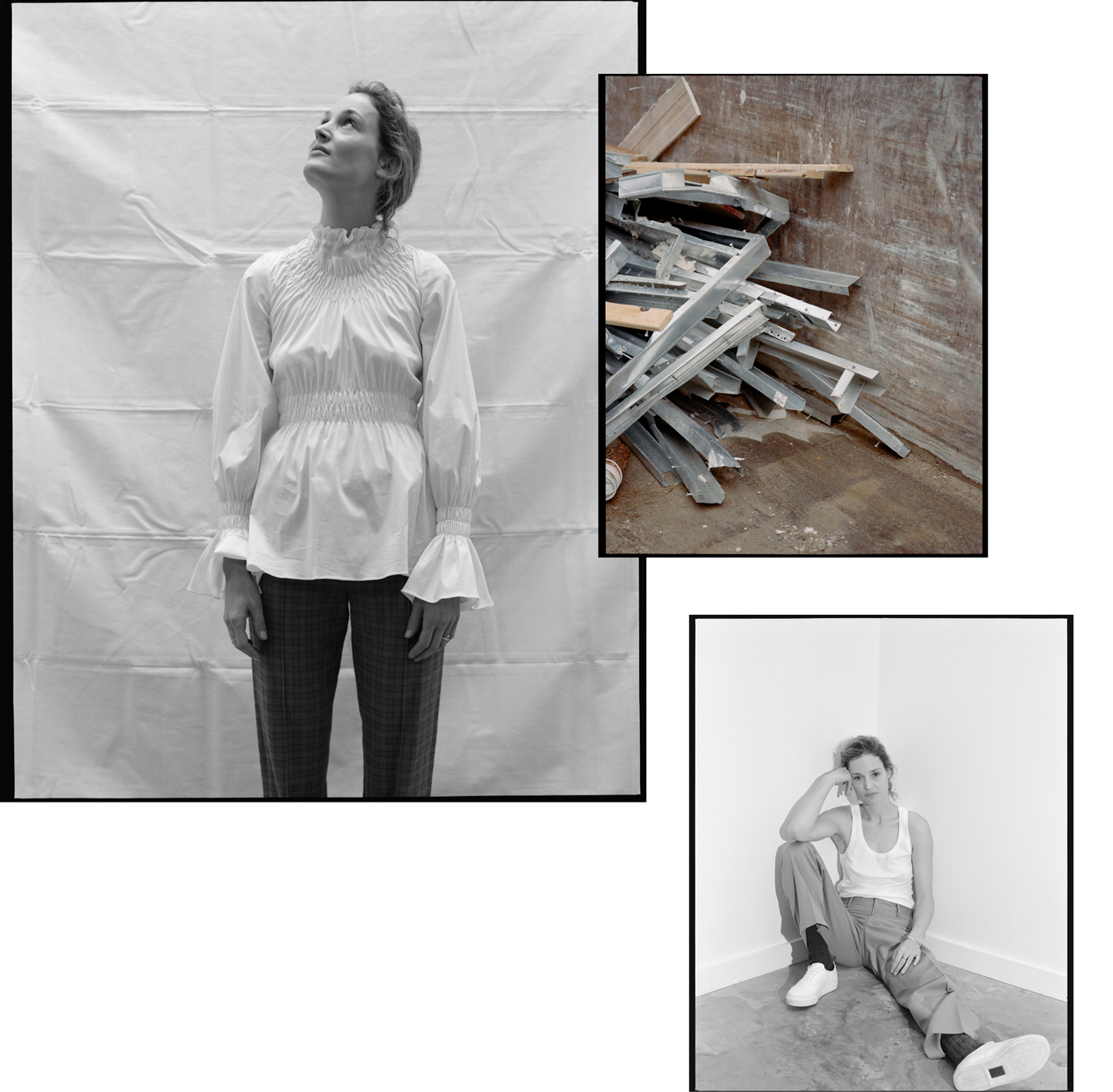
Krieps says she felt an instant connection to both Alma and Anderson, who came to Berlin to meet her. She bought them tickets to a play that referenced his 1997 film Boogie Nights, but they arrived at the theater two minutes late and were turned away, and decided to go have Vietnamese instead. “It sounds weird, but it was clear right away even for me,” she says of her affinity to Alma. “I could connect with her words and lines and they immediately felt familiar. I also immediately had a voice in my head of how she would speak. I think I could feel in this person something honest and pure, which I’m always looking for. I was fascinated by her because on one hand, she seems patient and almost submissive, but on the other hand, very individual and strong-willed, and this mix was very interesting to me.”
But if Krieps felt an immediate bond to Alma, the relationship between her character and Reynolds took longer to puzzle through—a process that the actress says continues to this day, even after having seen the film multiple times. “It doesn’t give you answers,” she says. “It leaves you completely in the open, so I think everyone will have his own opinion.” The power dynamic between Alma and the domineering Reynolds takes on a new angle given the recent revelations of ongoing misconduct in a variety of male-dominated industries—although it should be said that there is no sexual abuse in Phantom Thread and, indeed, the behavior onscreen goes both ways—a new facet that Krieps says she appreciates. “I like our movie now with this topic because for me the movie is about the dialogue,” she explains. “I grew up a very emancipated woman and I have met not-very-nice men too, but I never felt like there was a war going on. I think this is very important. If we talk about this, it has to be a dialogue.”
To American audiences, Krieps may seem to have come out of nowhere, but it took her many years of work to get here. “I think I always had this in me to want to act, but because I’m from Luxembourg, which is very small, I didn’t dare to think that I would be an actress,” she laughs. She went to acting school expecting to end up a director, then took time off after high school to volunteer in South Africa and travel through Mozambique and Tanzania before deciding to take the chance and give acting a try. She moved to Berlin and started working with a casting director, promptly realizing she made the right decision. “I very quickly felt a very strong connection to the medium,” she recalls. “More than anything else, I was attracted to the camera and the medium of film. I went into this trying to explore what it means to have this camera, which to me is like a living thing, but it’s also a machine.”
Now with a Paul Thomas Anderson film behind her, Krieps acknowledges that her opportunities have expanded considerably, although she says she will maintain the same approach to her work that she always has, as assured in her own sense of self as Alma is. “I didn’t expect it and it wasn’t my goal,” she says of her big Hollywood break. “I just always knew I really liked making movies, so there was this attraction, but I didn’t have a plan. I still don’t have a plan. People ask me now, ‘So what is your next project? What do you think? Will you now make American movies? What’s your plan?’ But I didn’t have one, so I don’t have one now. I’ll continue the same way I have done it now.”
Phantom Thread is out December 25.
- By
- Jonathan Shia
- Photography by
- Ryan Plett
Styling by Ahnna Lee. Hair by Jillian Halouska at Starworks Artists. Makeup by Kelsey Deenihan at The Wall Group.
